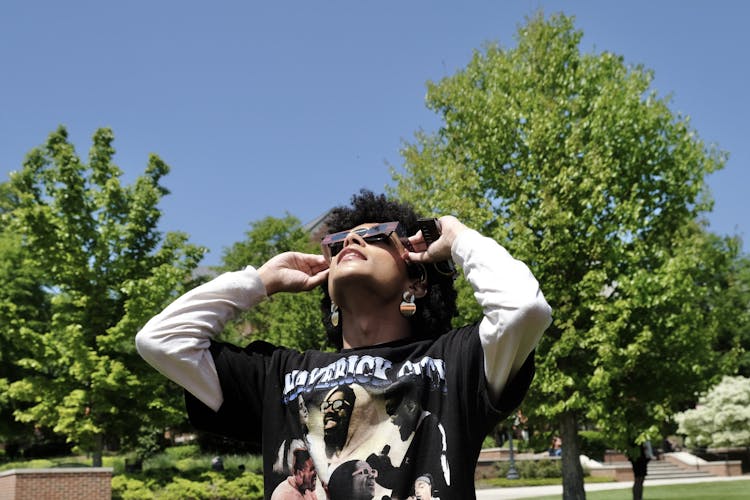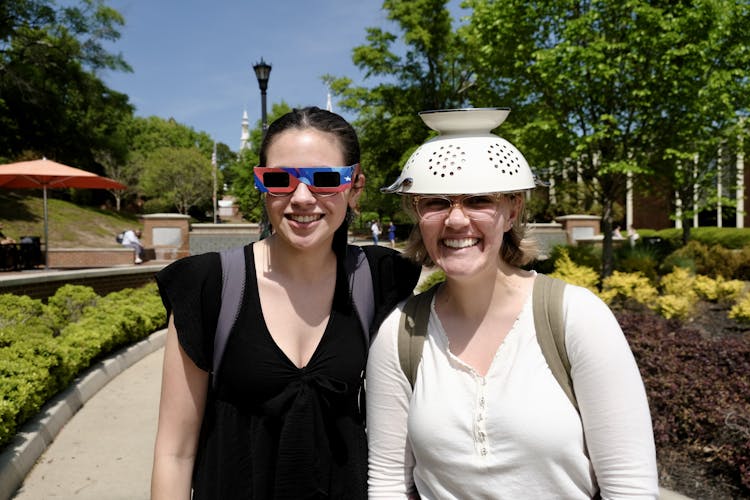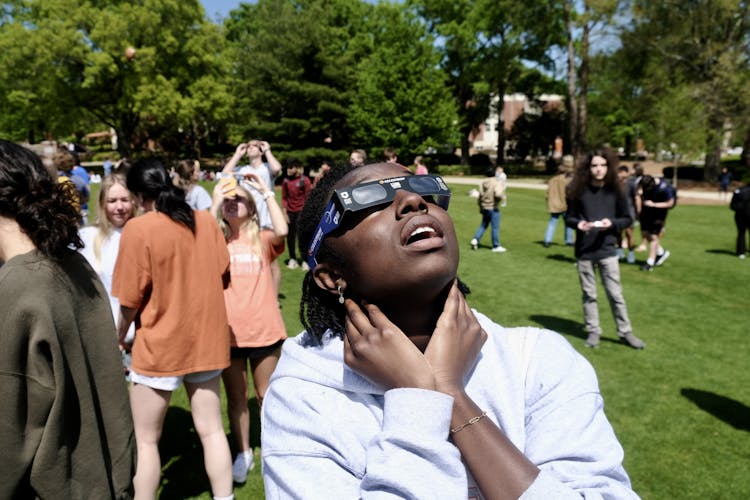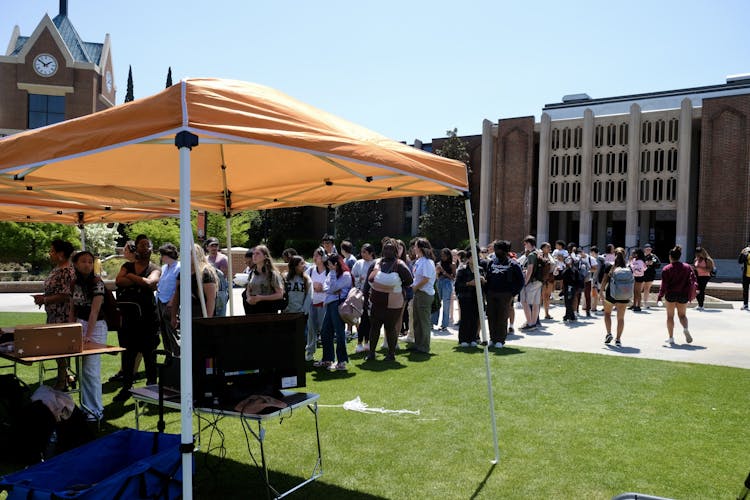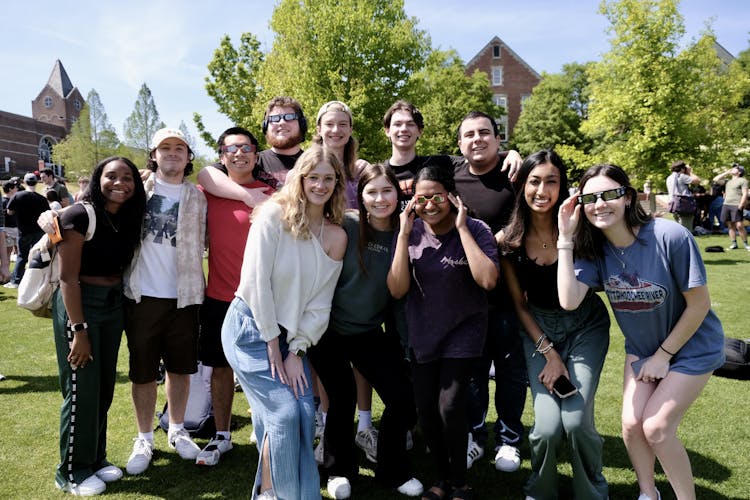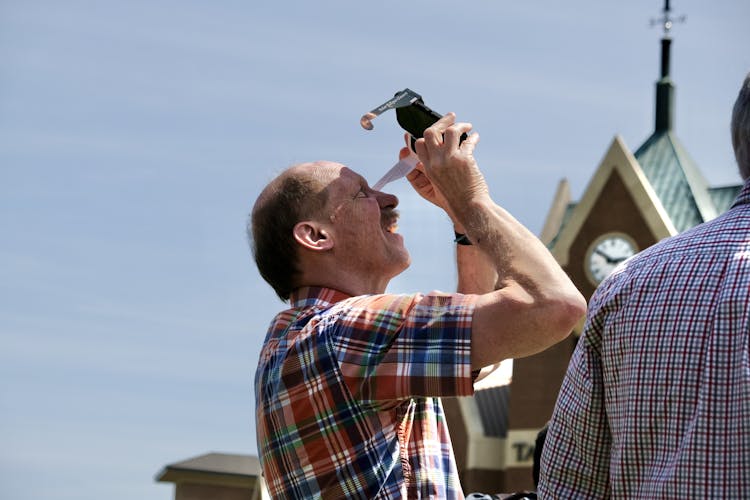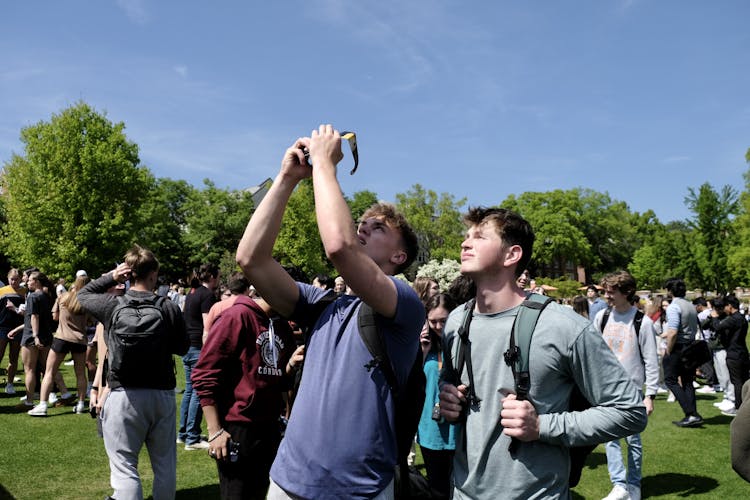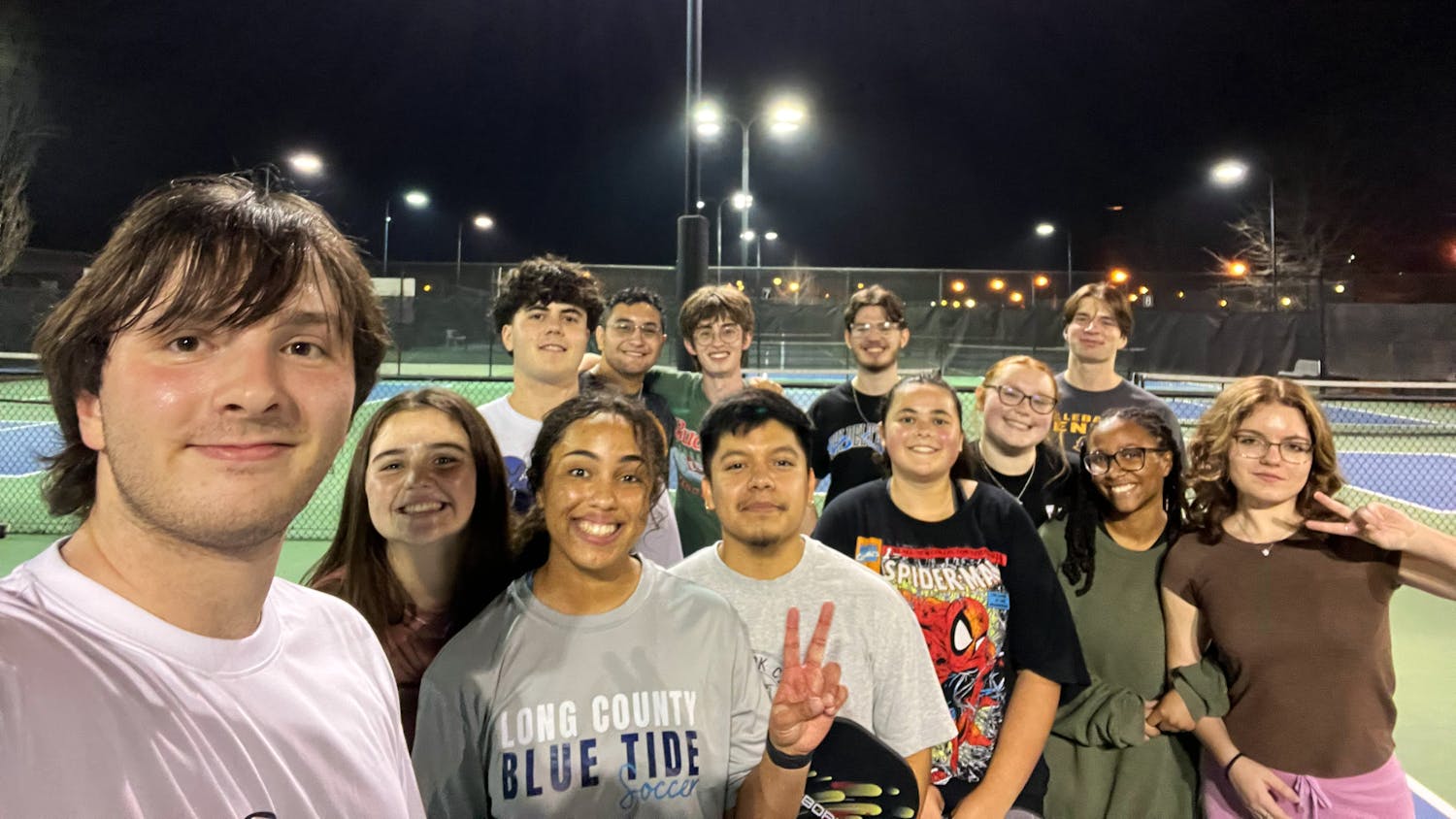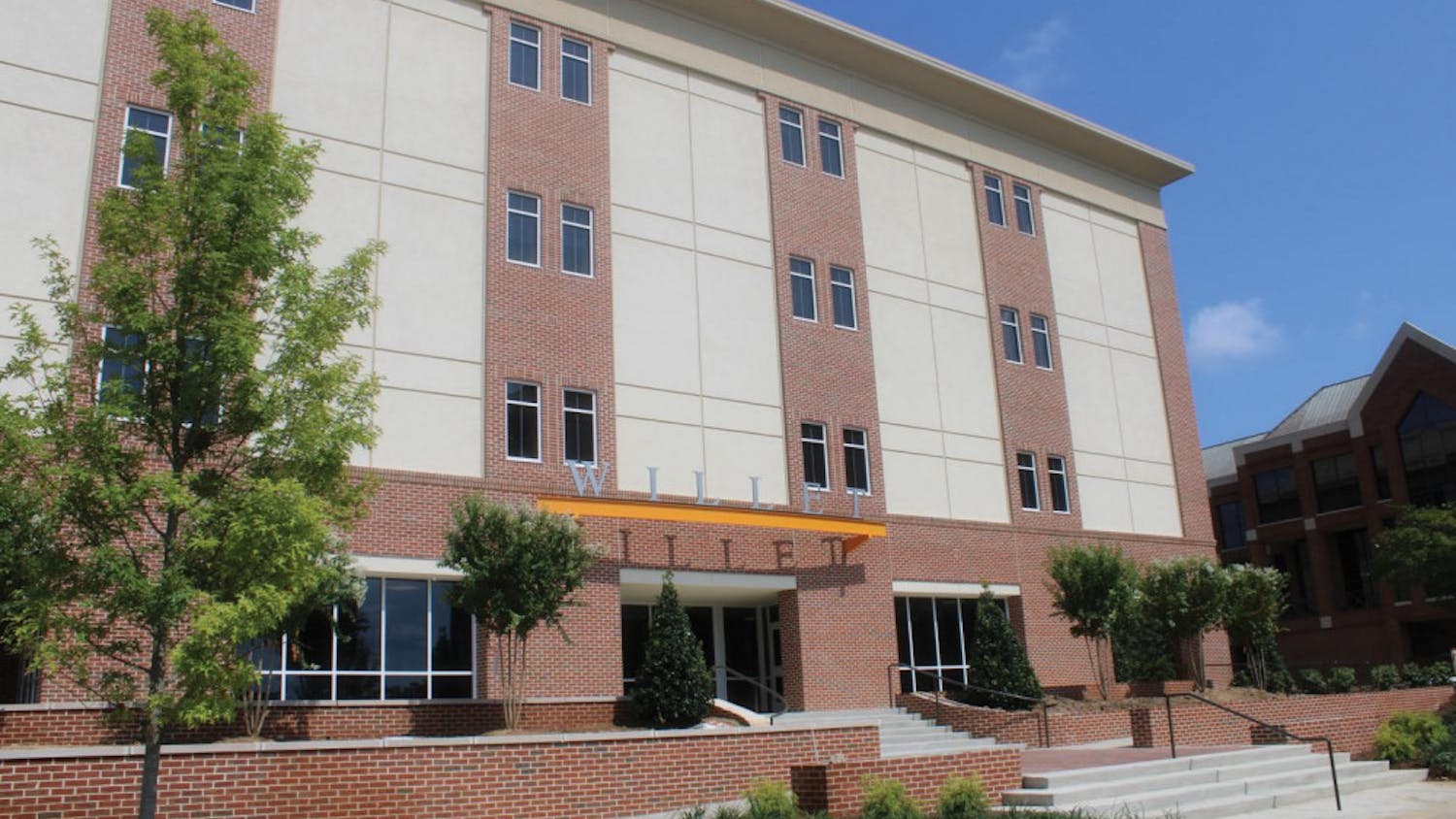Hundreds of Mercer students and community members gathered on Cruz Plaza on Wednesday afternoon in order to witness a partial solar eclipse, an event most people only experience a few times during their lifetime.
According to NASA, a solar eclipse occurs when the moon passes between the sun and the earth, blocking the sun. During a full solar eclipse, the sky darkens as though it is dusk.
While the total eclipse was only visible in certain U.S. cities like Dallas, Texas and Little Rock, Arkansas, Middle Georgia still witnessed a partial eclipse, where about 80% of the sun was covered. In Macon, the eclipse began at 1:46 p.m., peaked at 3:04 p.m., and ended at 4:20 p.m.
Matthew Marone, professor of physics at Mercer, stood next to telescopes with his astronomy students and gave anyone who was curious a chance to view the eclipse up close. He described himself as “crazily busy” but seemed to be in his element.
“I think astronomy is important because it’s a science that everybody can appreciate the beauty of,” Marone said. “This raises interest in astronomy and interest in science, and there’s not going to be another one for another twenty years.”
This year’s total solar eclipse passed over North America, hitting Mexico, the United States, and Canada, a much larger scope than most eclipses, Marone said.
“It goes through a big population area so there’s going to be millions of people that can see this,” Marone said.
Using special glasses, onlookers were able to view the solar eclipse directly. Without glasses, the sun’s rays are too damaging for the viewer's naked eye. Students waited in a long line to receive solar eclipse glasses from Mercer’s Astronomy Club, which hosted the event.
Morgan Hall ‘27, vice president of Mercer’s Astronomy Club, helped organize the solar eclipse viewing. She loves being a part of the astronomy club.
“I just enjoy that after a hard day of class and practice I can come out here and look at the stars and look at the moon. Even events like this are incredibly fun,” Hall said.
Masha Popovic ‘27 was among the many students who spent the afternoon on Cruz watching the eclipse’s progress. She said it was amazing to see so many people interested in science.
“I personally love physics and especially astronomy. I also frequently go to Thursday night meetings with the Astronomy Club here at Mercer and they just do so much fantastic stuff,” she said.
Many Mercer students remember being let out of school for the U.S.’s last total eclipse in 2017. However, Popovic is from Serbia, so this eclipse is more rare for her than for her American peers.
“In Europe we don’t really get the chance to see them as often, so Mercer offering this to their students is really special to me, and gives me the chance to see this for the first time ever, so I’m really excited,” Popovic said.
According to NASA, the next total solar eclipse visible from the United States won't happen until 2044.
Eliza Moore ‘24 is an English and Journalism student at Mercer University. She is now in her second year working as The Cluster’s News Editor after a semester abroad. She is currently producing work for Macon Magazine and Georgia Public Broadcasting in addition to her work with The Cluster. She loves breakfasts, the ocean, and all things related to writing.

